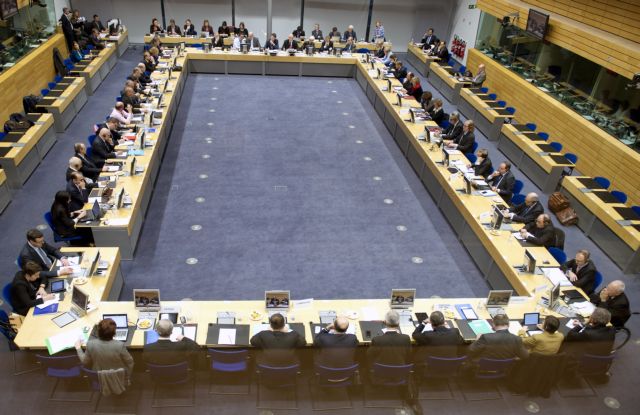The draft announcement of the Eurogroup for Greece that was to be issued, but ultimately was not, read that Athens would have thought about an extension, which, if successful, would have «bridged the time» for a new agreement, according to the Financial Times.
The Greek side rejected the draft announcement and according to the Financial Times it did so because of a reference to an extension and successful completion of the current program. According to the FT article all sides had agreed on the announcement but following a teleconference between Giorgos Dragasakis and Yanis Varoufakis with Maximos Mansion it was rejected.
The reference to an «extension» of the program was the point that prevented the a common press following the Eurogroup talks, as confirmed Thursday morning by Greek government spokesman Gabriel Sakellaridis. The text that was written but never published was presented by the British newspaper’s journalist Peter Spiegel.
It was the leaked Eurogroup statement that Yanis Varoufakis agreed to, then Athens rejected, Spiegel wrote on Twitter to receive an immediate answer by the Greek FinMin “Might I suggest that you refrain from dubious claims based on even more dubious leaks? It’s rather unseemly.”
Reuters News Agency said it was also aware of the text, stating that Athens’ disagreement was particularly caused by the reference to an extension. In particular, the text presented by the Financial Times is as follows:
“Today the Eurogroup took stock of the current situation in Greece and the state of the current adjustment programme. In this context, the Eurogroup has engaged in an intensive dialogue with the new Greek authorities. The Greek authorities have expressed their commitment to a broader and stronger reform process aimed at durably improving growth prospects. At the same time, the Greek authorities reiterated their unequivocal commitment to the financial obligations to all their creditors. On this basis, we will now start technical work on the further assessment of Greece’s reform plans. The Greek authorities have agreed to work closely and constructively with the institutions to explore the possibilities for extending and successfully concluding the present programme taking into account the new government’s plans. If this is successful this will bridge the time for the Greek authorities and the Eurogroup to work on possible new contractual arrangements. We will continue our discussions at our next meeting on Monday 16 February



